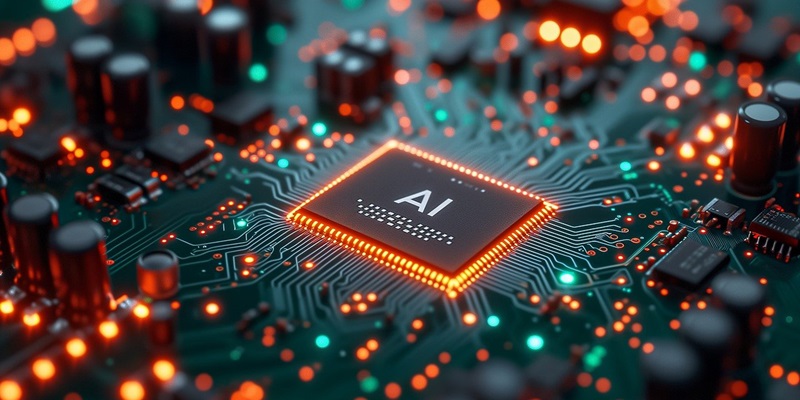OpenAI, a prominent player in the AI research arena, is embarking on a significant venture into designing its own specialized semiconductor chips. This pivotal move is aimed at diminishing its dependence on Nvidia, the dominant supplier in the industry. By taking steps toward hardware autonomy, OpenAI is laying the groundwork for more controlled and potentially accelerated progress in AI development. This not only reflects OpenAI’s commitment to innovation but also underscores a broader trend where companies in the AI sector seek to tailor their hardware needs in-house to align closely with their sophisticated software requirements. Developing proprietary chips could give OpenAI an edge in optimizing their models and algorithms, ensuring that their systems operate at peak efficiency and performance. As AI research pushes new boundaries, the need for customized computing resources becomes increasingly crucial, and OpenAI’s strategy may well be a harbinger of where the industry is headed.
Pursuing Independence
The Push for Proprietary Chips
OpenAI’s move to craft its own semiconductor chips is driven by the desire for bespoke hardware to match its unique AI model needs. Relying on Nvidia, although beneficial for its cutting-edge technology, imposes certain limitations due to dependency on Nvidia’s release cycles and design choices. By taking chip production into its own hands, OpenAI aims to break free from these constraints, enabling it to engineer hardware that’s finely tuned to its AI’s demands. This strategic shift could lead to better performance and increased efficiency in AI tasks, as OpenAI’s algorithms would run on chips explicitly designed to support their specific computational patterns. Custom hardware could provide a crucial edge in the competitive field of AI, ensuring OpenAI’s systems operate at peak capacity with optimizations not possible with off-the-shelf components.
Partnering with MGX
OpenAI has taken a significant strategic turn by initiating talks with MGX, an enterprise supported by Abu Dhabi’s government. This collaboration could be transformative, potentially injecting robust investments into OpenAI’s projects. MGX’s connections with powerhouses like G42 and Mubadala, coupled with Sheikh Tahnoon Bin Zayed Al-Nahyan’s leadership, provide it with substantial leverage and resources. This association is particularly advantageous as OpenAI seeks to make waves in the semiconductor realm, a highly contentious market. Should this partnership materialize, OpenAI could find itself in a position to disrupt the industry, leveraging MGX’s financial strength and strategic position. This could catalyze a new era where OpenAI is not just a significant player in artificial intelligence but also a formidable competitor in semiconductor technologies, challenging established industry giants.
Global Semiconductor Race
The UAE’s AI Aspirations
The United Arab Emirates, through its enterprise MGX, is strategically positioning Abu Dhabi as a pivotal hub within the worldwide AI sector, underlining the nation’s commitment to playing a key role in a rapidly evolving technological field. A partnership with OpenAI underscores this ambition, highlighting the UAE’s intent to not just fuel local AI development but also to establish itself as a central node for global AI innovation and cooperative ventures. This move is aligned with the UAE’s broader objective to integrate advanced technologies into its core economic vision, recognizing AI’s vital importance in shaping future progress. As part of this initiative, the UAE aims to attract talent, investment, and groundbreaking research to fortify Abu Dhabi’s stature as a leading destination for AI experts and enthusiasts, ensuring that it remains at the forefront of technological breakthroughs and applications in artificial intelligence.
The Broader International Context
The UK’s investment in semiconductor research reflects global recognition of this sector’s strategic significance. As part of Horizon Europe’s “Chips Joint Undertaking,” the UK is contributing to the €1.3 billion fund earmarked for development until 2027, with additional support from its government. This move acknowledges the critical role that semiconductors have in determining the trajectory of future economic and technological progress. Collaborations in this domain—mirrored by initiatives between OpenAI and the UAE—signal an escalating race among nations to lead in semiconductor technology. This technological cornerstone not only fuels AI innovation but also signifies control over the digital future. Each national effort in this field is a step toward securing a vantage point in the rapidly advancing digital age.

